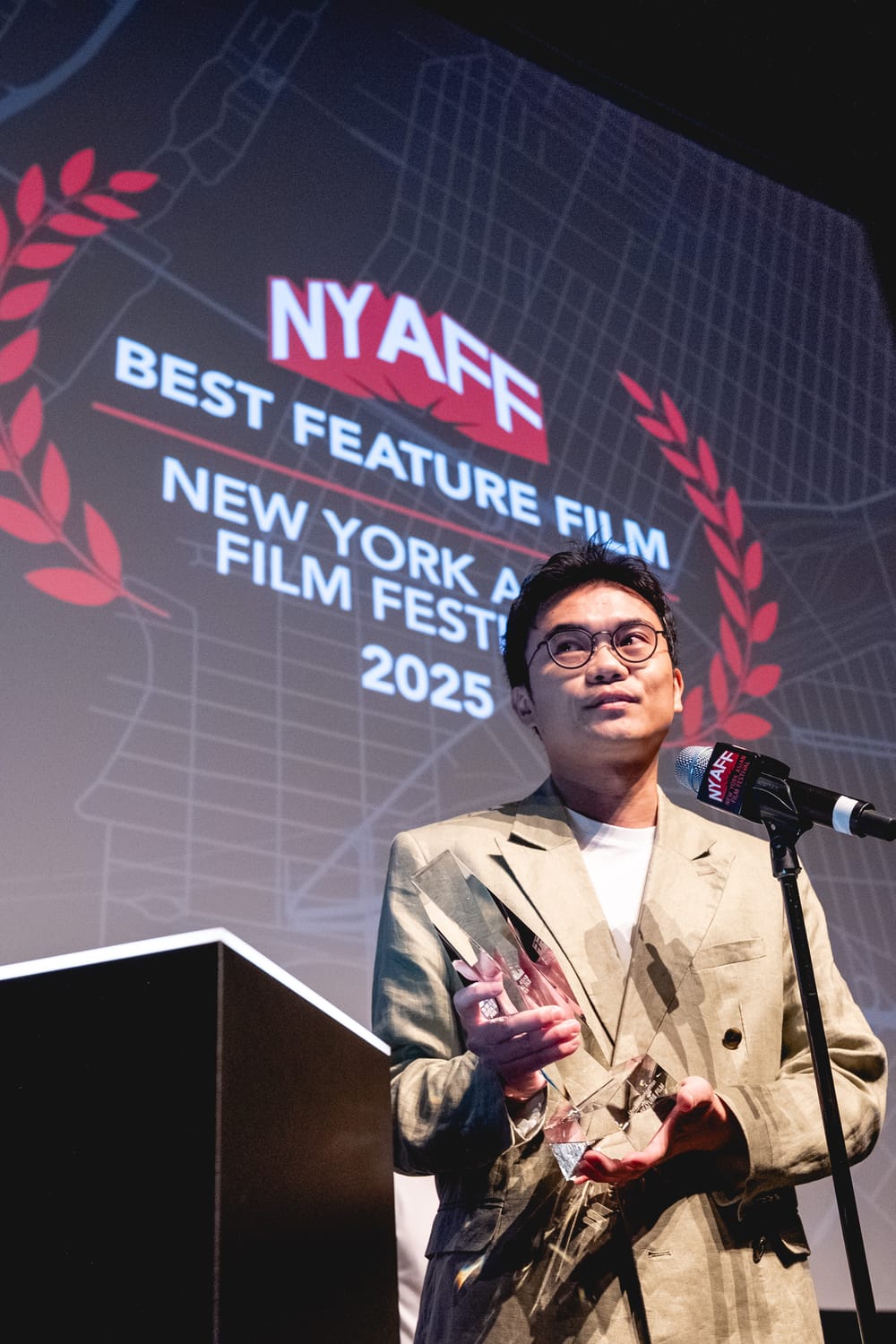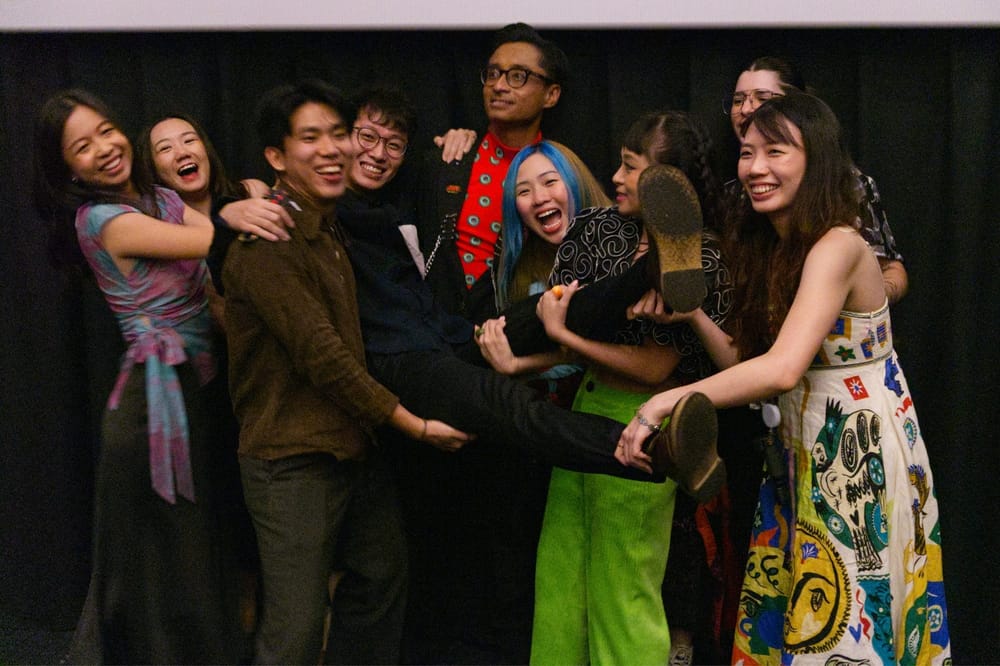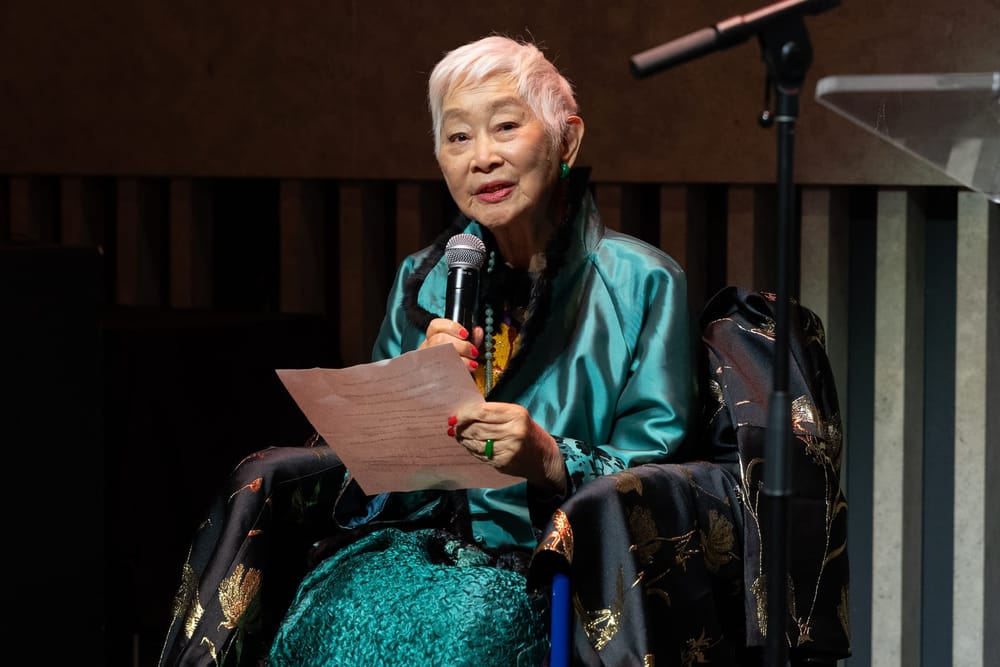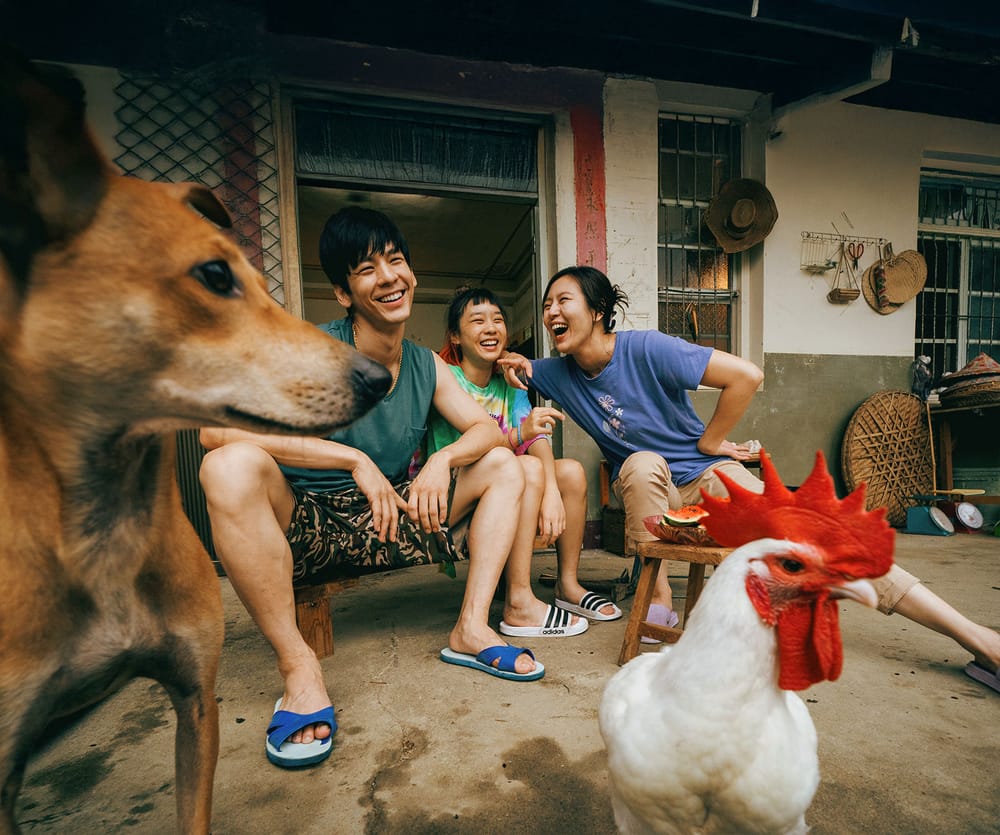Uncaged kicks off our inaugural New York Asian Film Festival newsletter with some exclusive chats from last years attendees and some programmers picks that you may have missed!
by Stevie Wong
With the New York Asian Film Festival right around the corner (July 11th to be exact) we wanted to bring our readers even closer to the festival by talking to attending guests and giving you exclusive insight on this years #NYAFF2025.
Last year brought over 90 movies to our audiences, with many sold out screenings and countless visiting guests including dir: Sean Wang (Didi), Thai superstar Billkin (How to Make Millions Before Grandma Dies), Nicholas Tse (NYAFF Star Asia Award recipient) and many more.
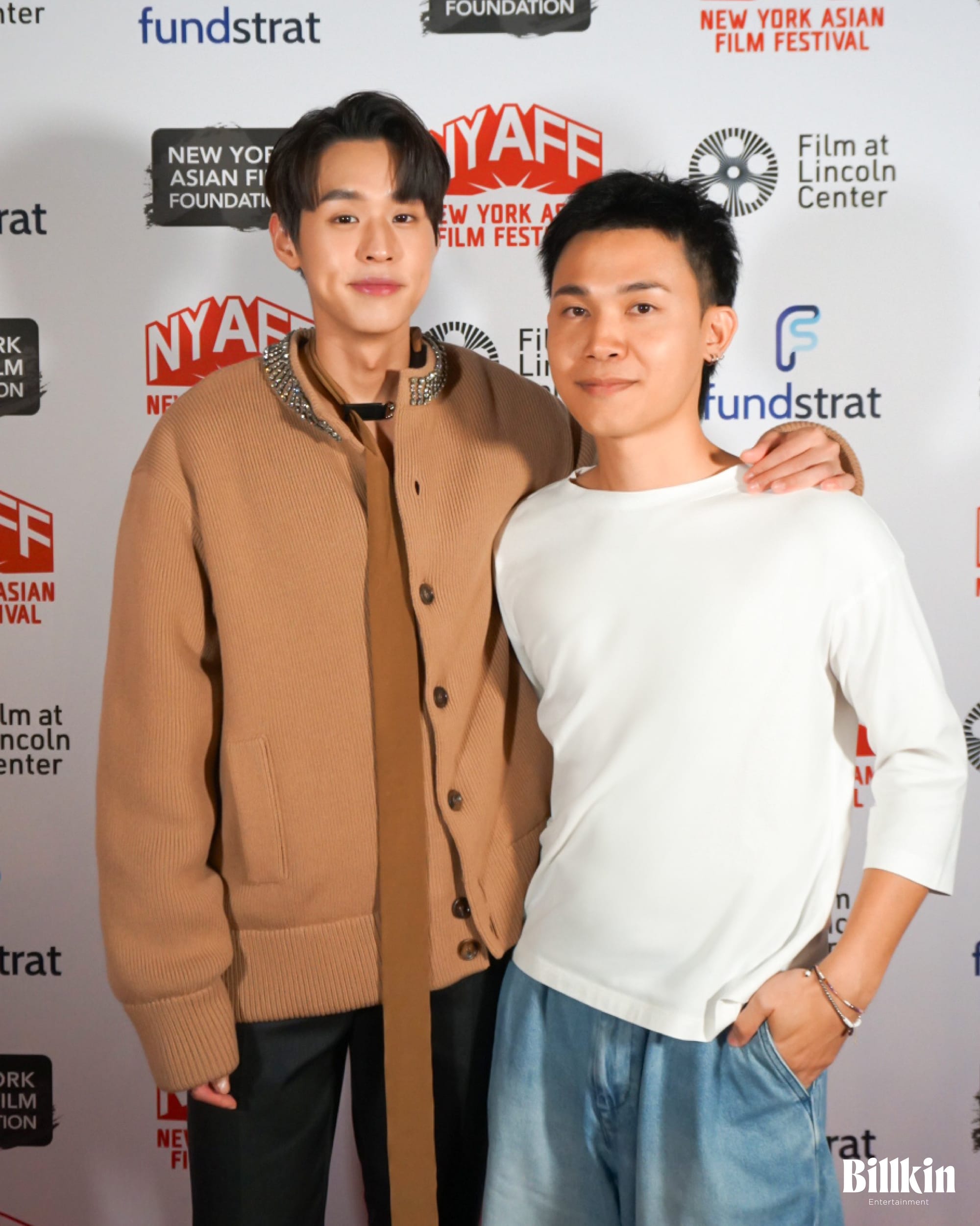
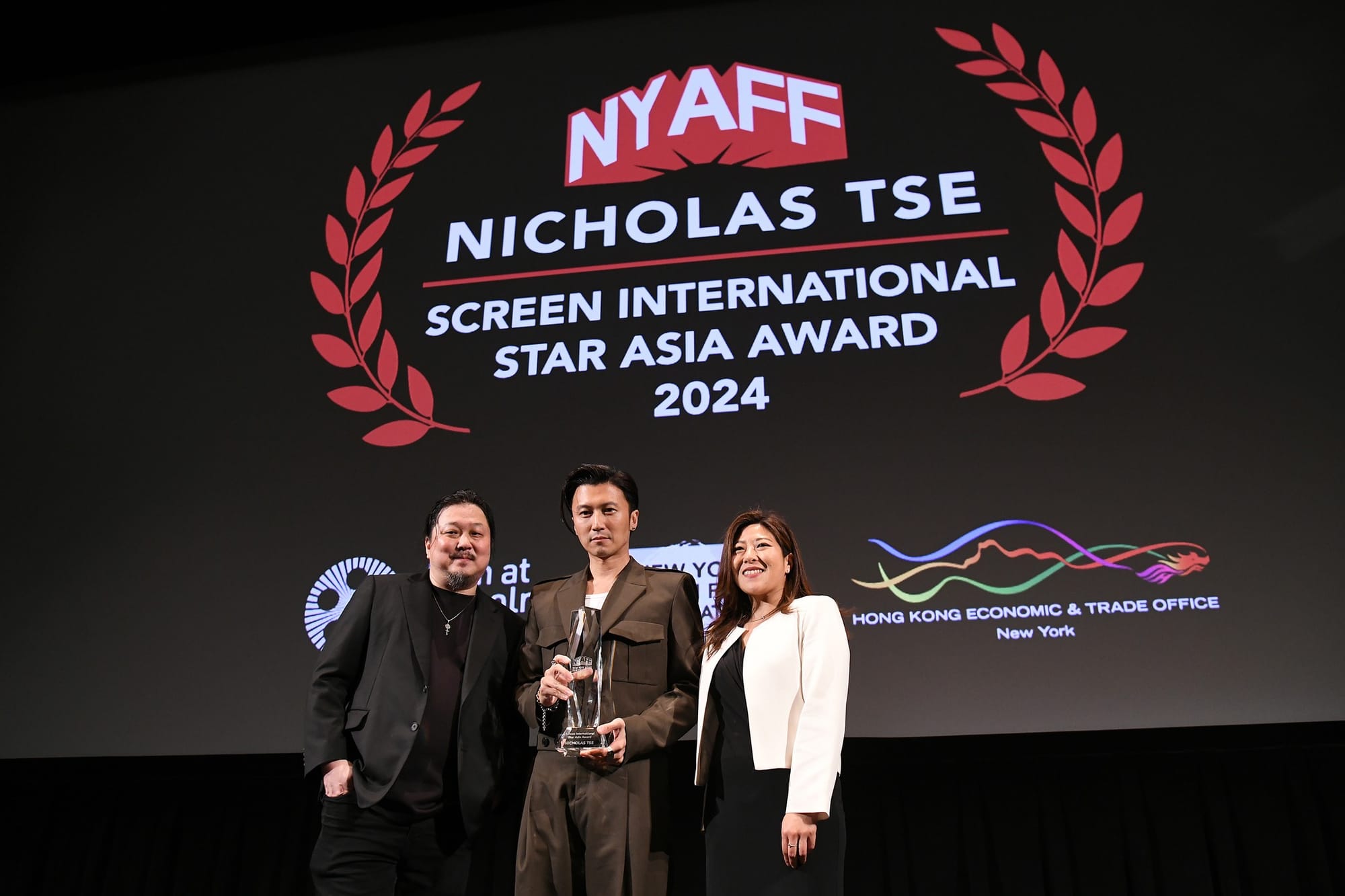
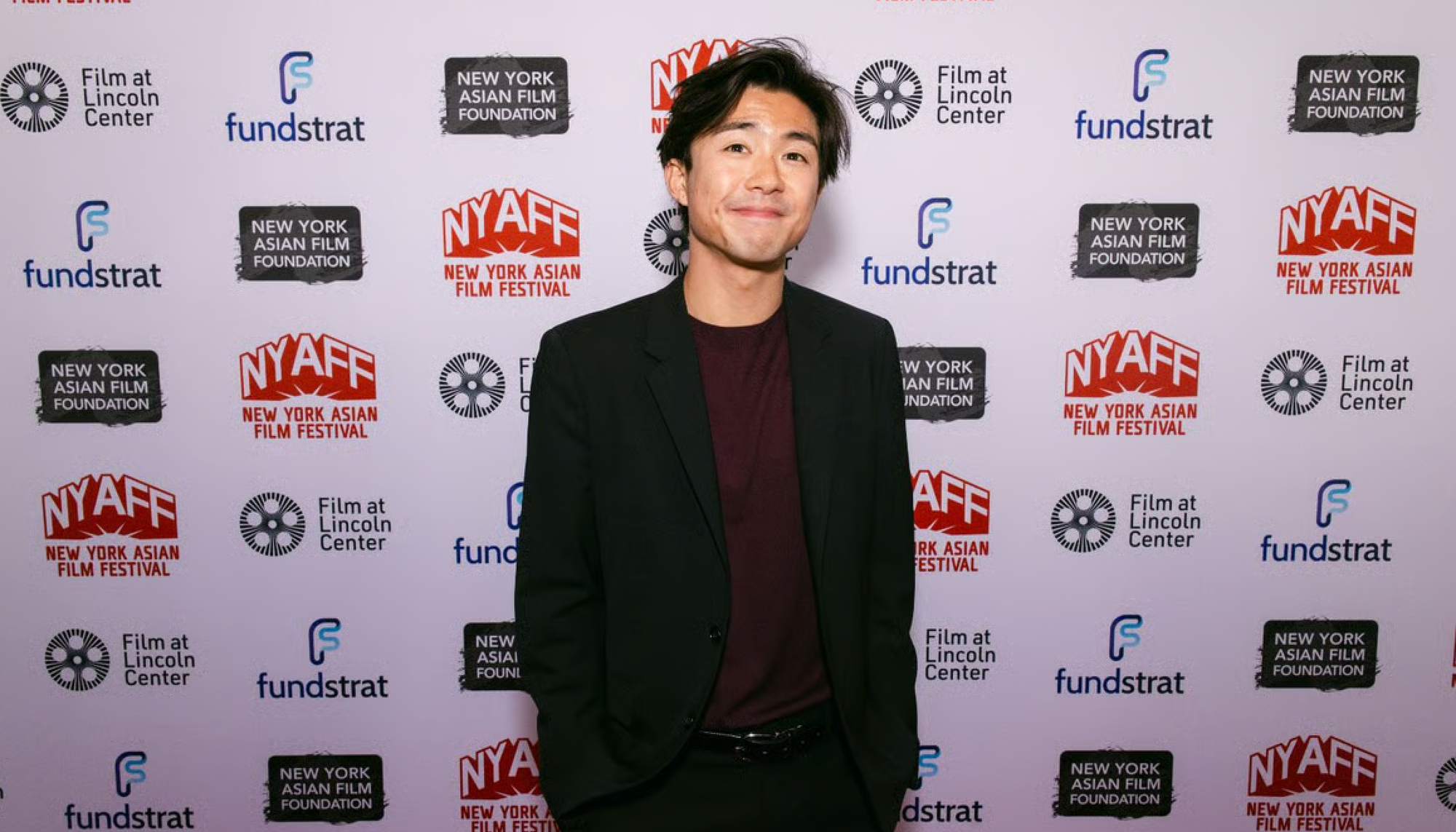
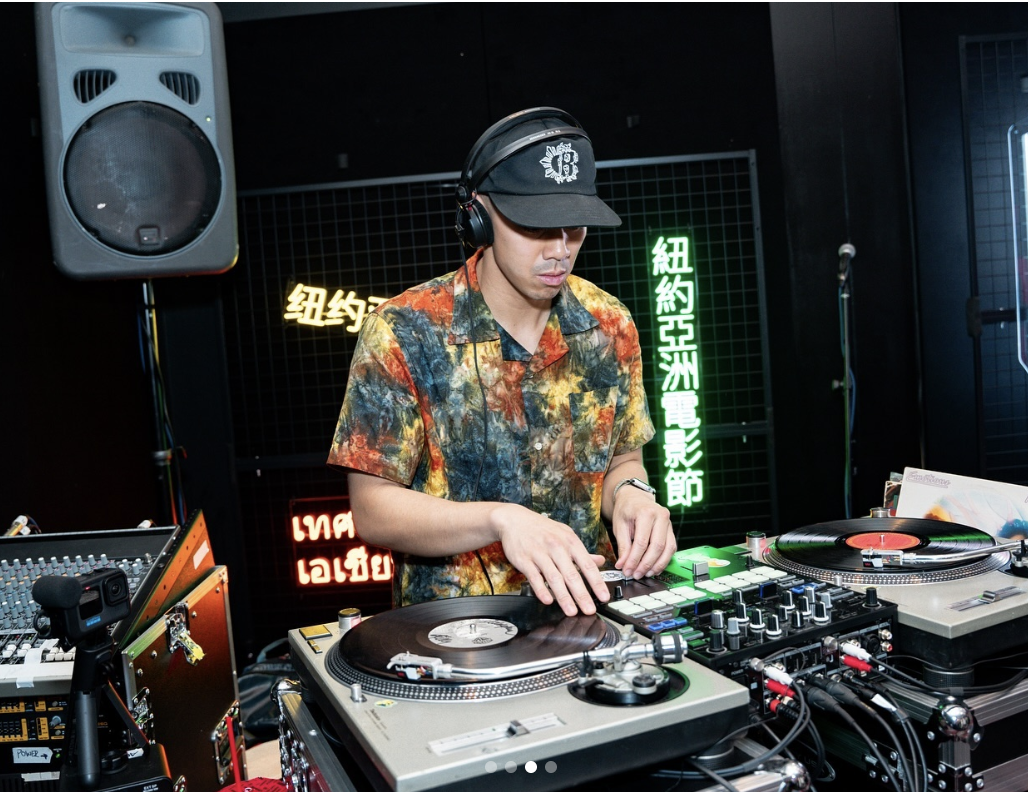
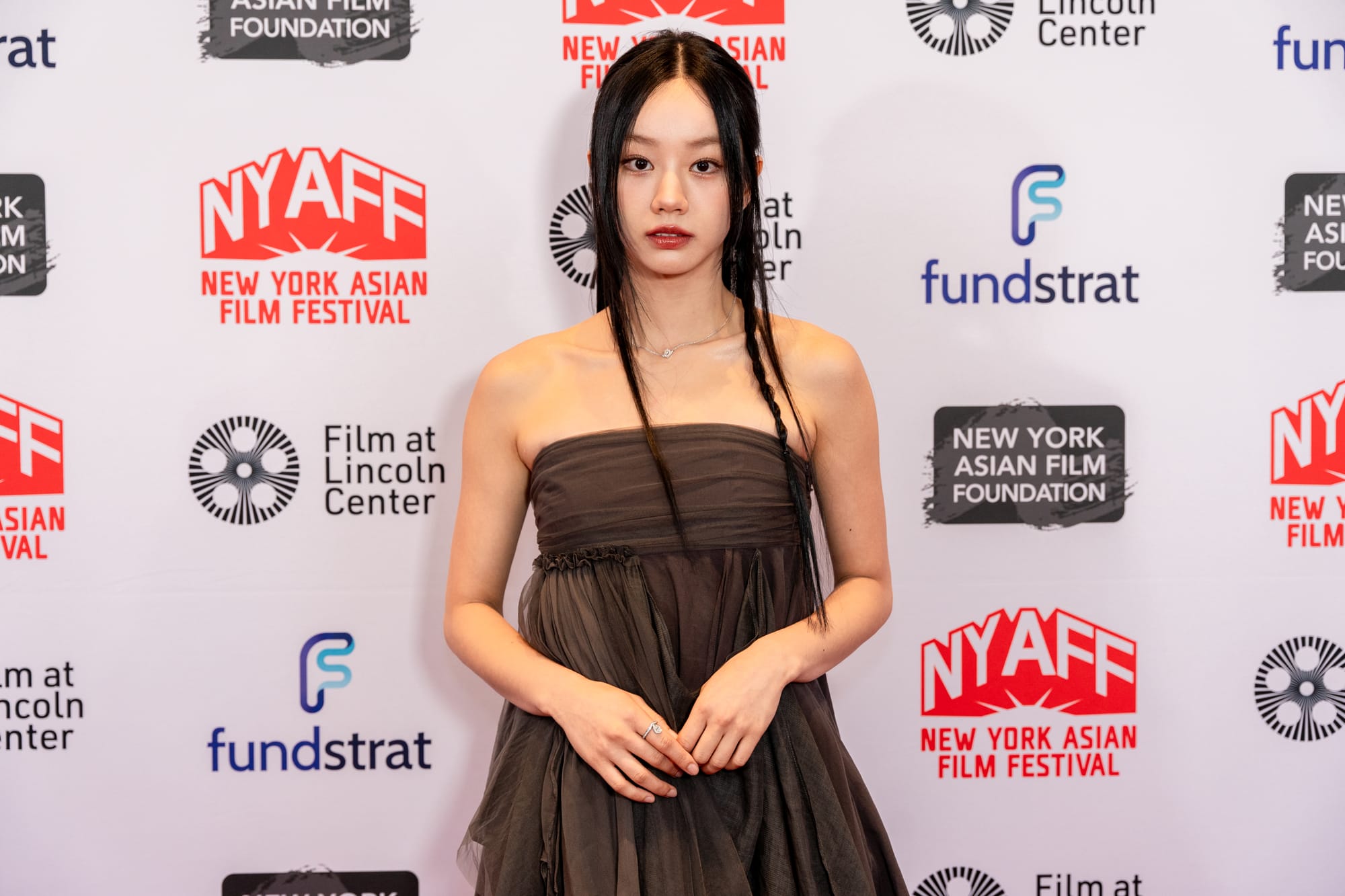
Billkin with dir: Pat Boonnitipat, Nicholas Tse, Sean Wang, DJ Gabriele Trata, Lee Hye-ri
Uncaged talked to many filmmakers and actors last year and we decided to share some of the interesting conversations we had with them exclusively for you!
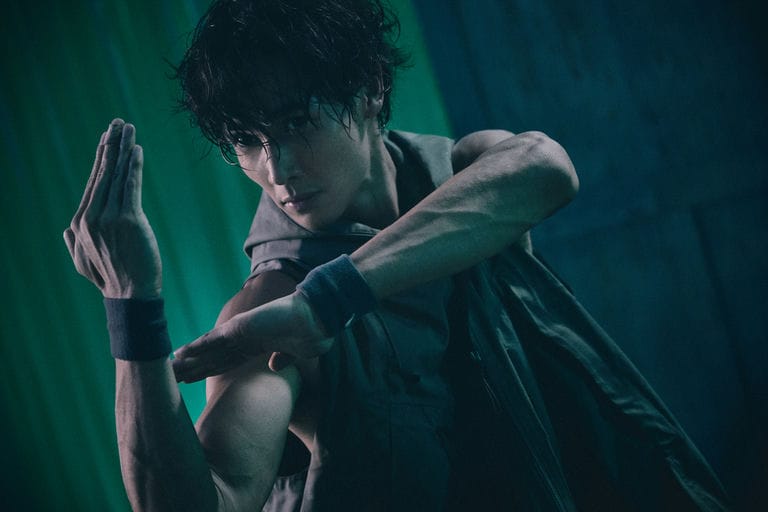
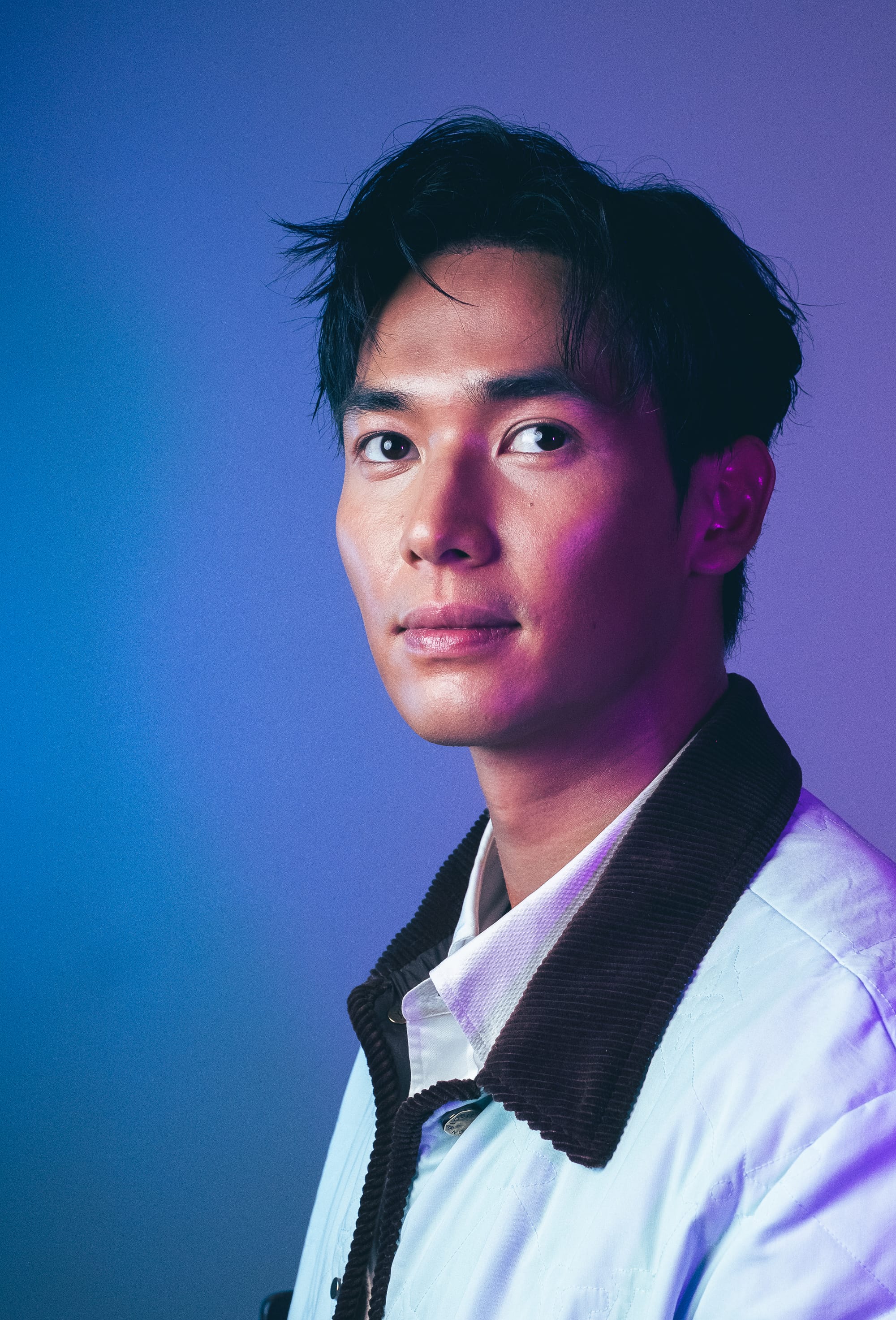
Angus Yeung portrait @Chris Kammerud
Angus Yeung - Inexternal
If Angus Yeung looks familiar, it’s because the young actor has appeared in several major Hong Kong action films in recent years (Raging Fire, Detective vs. Sleuths, The Goldfinger) sharing the screen with the likes of Nicholas Tse, Donnie Yen, and even Tony Leung Chiu-wai. But last year, Angus got the chance to lead his own film, Inexternal, directed by Kim-Wai Yuen. Playing a character trapped in an alternate universe, Ming must battle a powerful villain and his crew in order to return to his own world alive.
UNCAGED: How did you first get approached for Inexternal?
Angus Yeung: It was during the pandemic. I was at home wondering about life, worrying about my career, and then I got a phone call from my manager saying, “Hey, we might have a role that’s suitable for you. Do you want to meet Director [Kim-Wai] Yuen?” I said, “Sure, of course. Let’s go.” So, we sat down, talked for a couple of hours about this action movie, and I’m just grateful I kept myself in shape! Everything went smoothly.
UNCAGED: Speaking of being in shape, once you knew what was needed for the role, how did you approach it? There’s fit, but for this film, it’s another level.
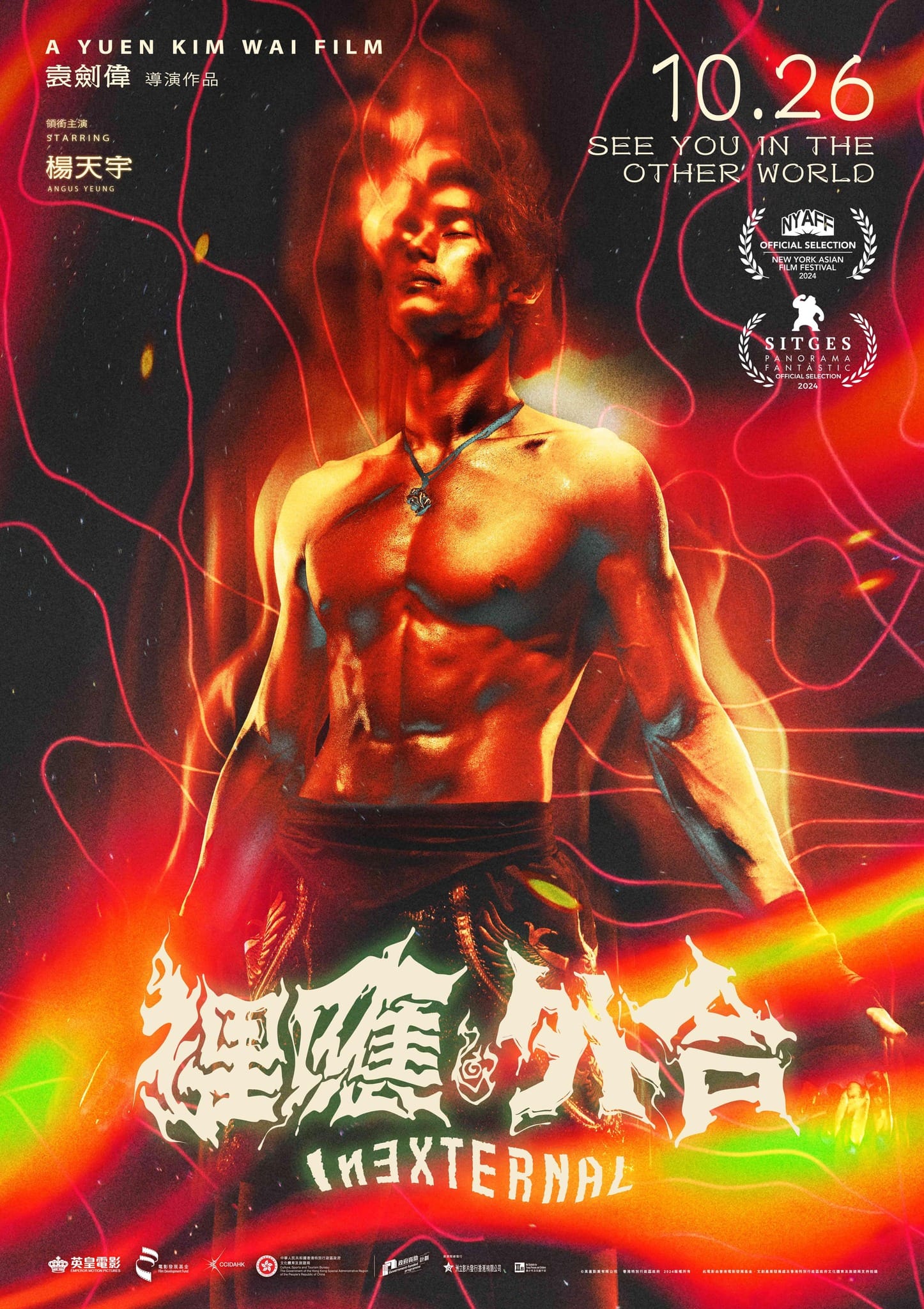
Angus Yeung: I was given the chance to train almost every day. Monday, Wednesday, and Friday I did calisthenics. After lunch, I’d drive to the boxing gym and box and body-build for two more hours. That was like five hours of training a day. On Tuesday, Thursday, and Saturday, I trained to do my own stunts. Sunday was rest day. I think the physical training helped me get into the mindset of the character. As I was gaining knowledge in martial arts, my character was also getting stronger. It felt like I was living parallel lives with him.
UNCAGED: Did you have any martial arts training before this?
Angus Yeung: I had zero relationship with martial arts. I didn’t know how to throw a punch or a kick. I had never learned martial arts, so everything I show in the film came from those two months of training.
UNCAGED: That’s unbelievable. Were there days where you were like, “What have I gotten myself into?”
Angus Yeung: I had to get there. But sometimes, like when I was doing street workouts, spinning on the bar, I failed a lot because I’m kind of afraid of heights. I’d think, “What if I spin and fall?” And then... I did fall, many times. I just kept doing it until I got it.
UNCAGED: What I love about Inexternal is that, even though it’s a Hong Kong movie, it doesn’t look like a typical Hong Kong movie. It feels retro, animated, and fantastical. This type of genre is really rare in HK cinema these days.
Angus Yeung: Yeah, this movie is different. It’s a mix of modernity and tradition. The tradition comes through in how my character embraces inner strength and values like wisdom, kindness, and bravery. The modern part is that most battles happen in an alternate dimension, with colorful sets and costumes. What happens there affects the character’s real life. I think it’s a new take for Hong Kong action films, bringing traditional martial arts into a modern world. I hope younger audiences connect with it.
UNCAGED: During COVID no one was working, and now suddenly you have three movies (Customs Frontline, The Goldfinger) in one year. What’s that like?
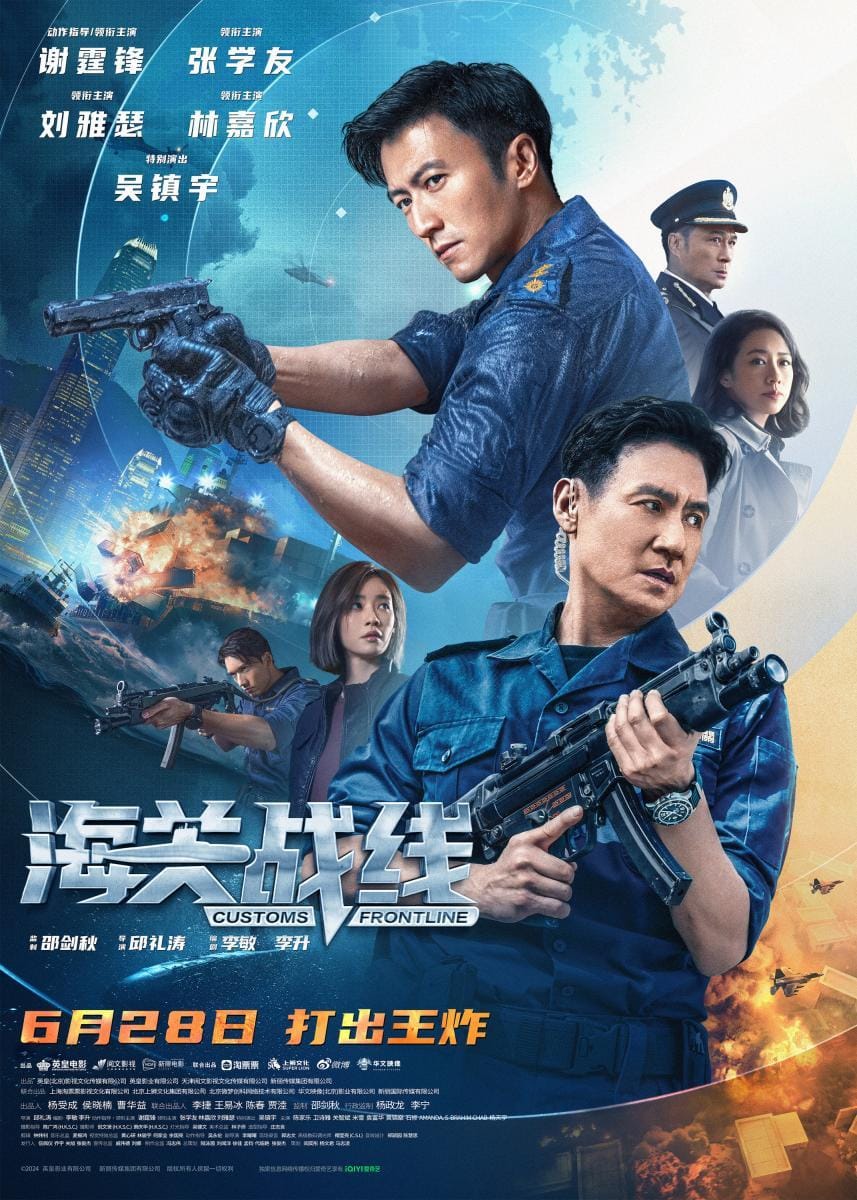
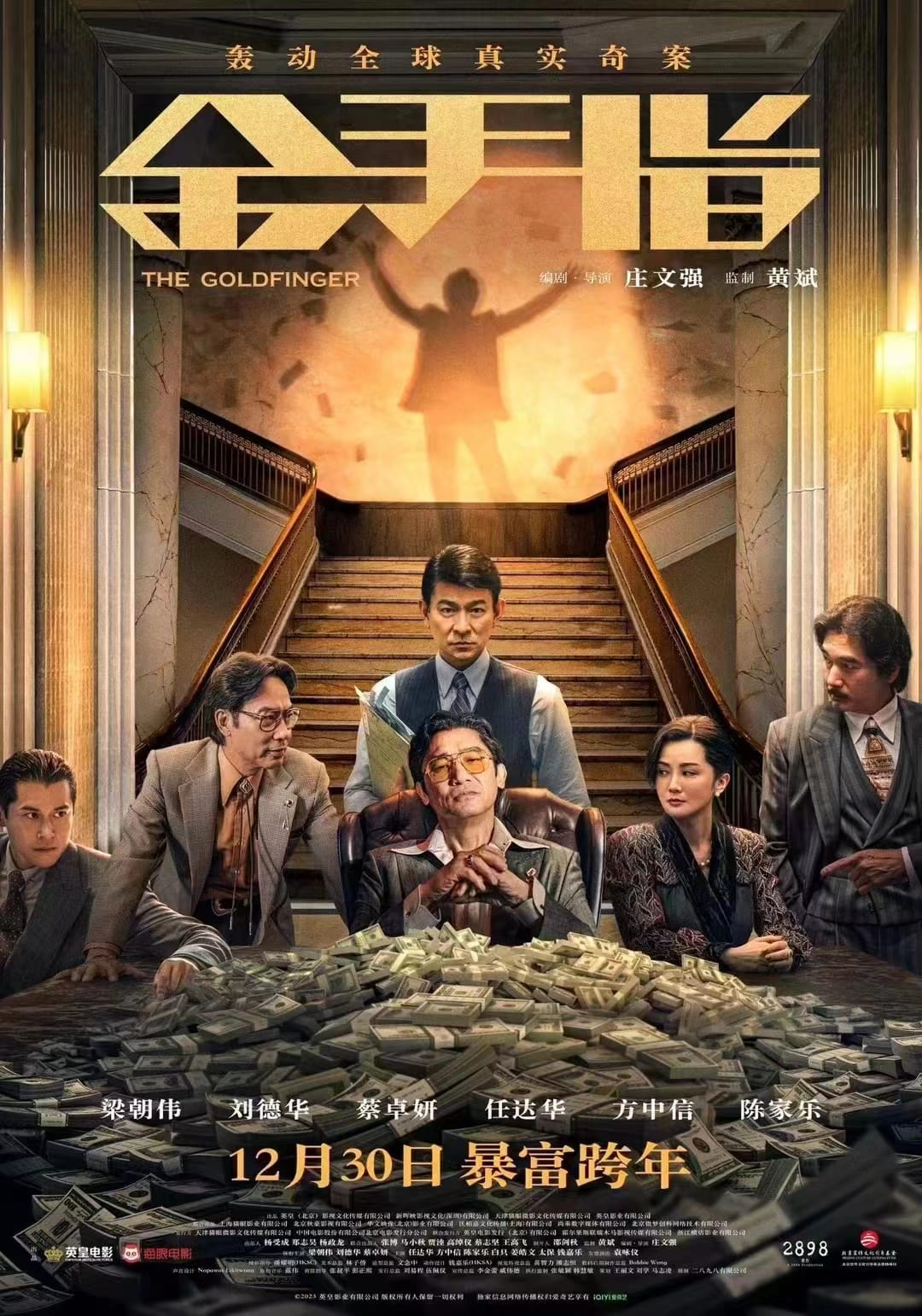
Angus Yeung: I feel really lucky. Working with actors like Nicholas Tse, I’ve learned a lot. I just hope everything turns out great.
UNCAGED: Do you enjoy being on set? You get to act alongside your heroes.
Angus Yeung: Oh yeah! When I was filming The Goldfinger, I had a scene with Tony Leung. I couldn’t speak. My eyes were shaking.
UNCAGED: And he’s so nice, too!
Angus Yeung: He is…but I’m a fanboy. I couldn’t stop thinking about that.
To read the full interview, please go to Uncaged.
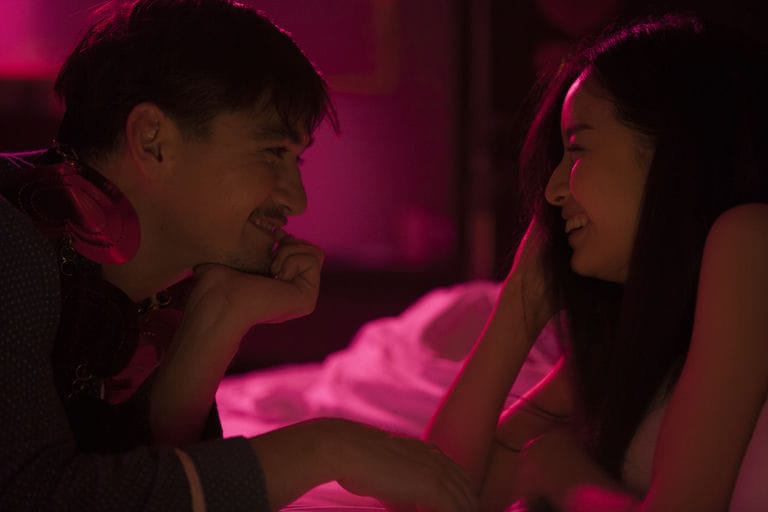
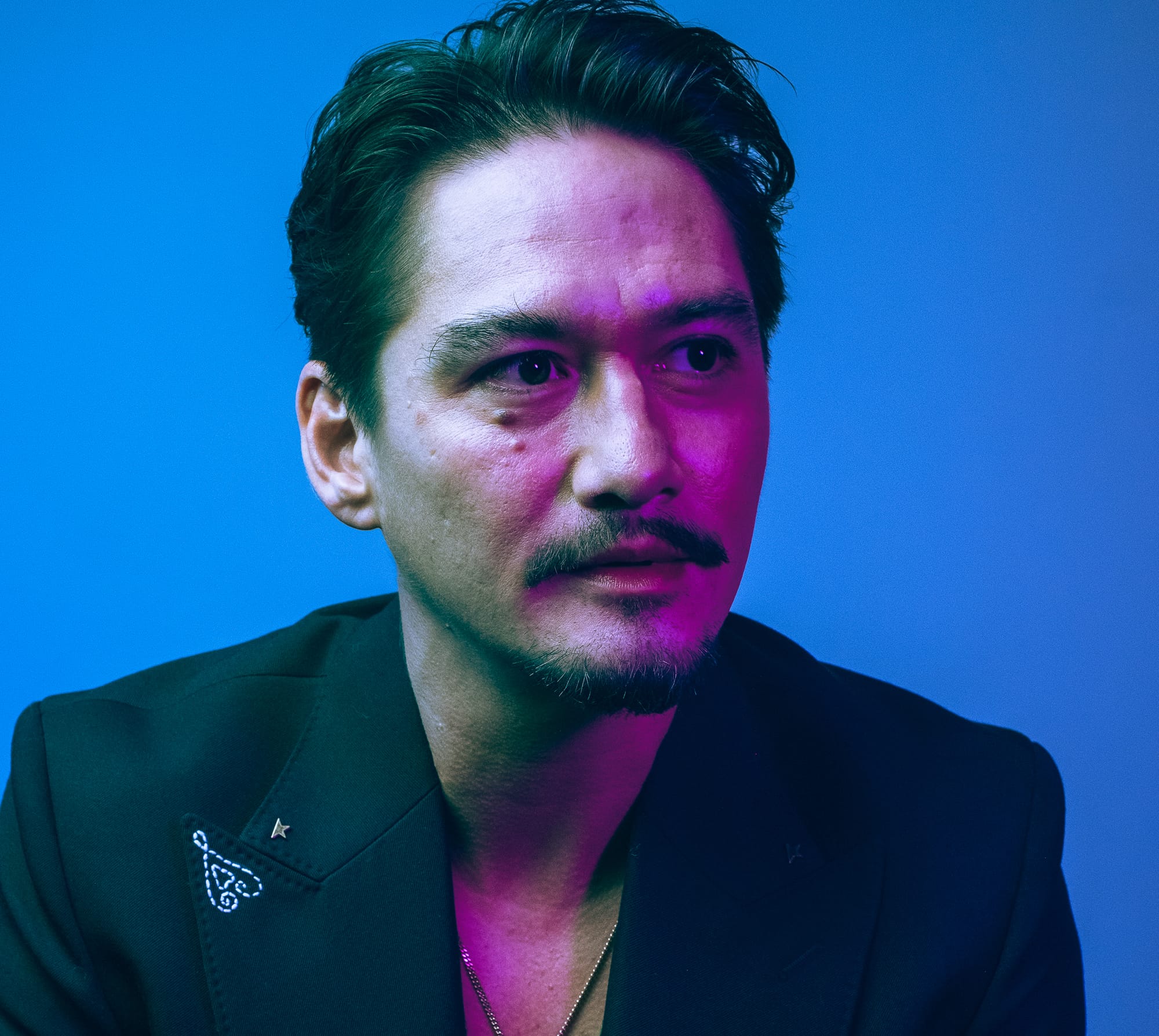
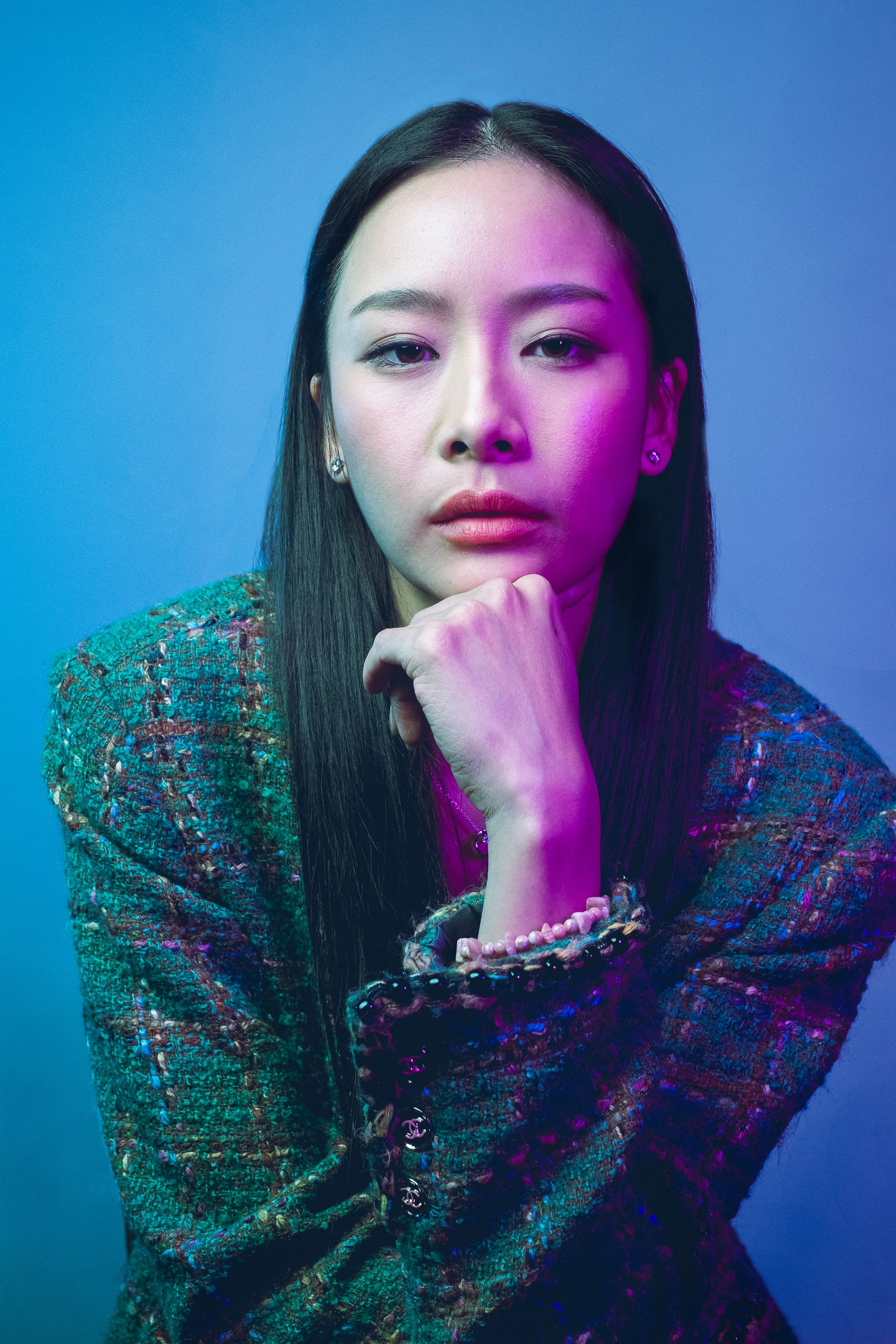
Supposed, Ananda Everingham & Chayanit Chansangavej @Chris Kammerud
Ananda Everingham & Chayanit Chansangavej - Supposed
Director Thanakorn Pongsuwan had the perfect idea, a low budget romance between a bored office-worker (Ananda Everingham) and a mysterious spontaneous young hipster (Chayanit Chansangavej), exploring the loneliness of urban life set against the busy streets of Bangkok. Creative and unrehearsed, Supposed was the antithesis of Pongsuwan's previous work as a successful action director in films like Demon Warriors and Fireball. Sadly, he passed away to Cancer before turning in the final cut. We talked to leads Everingham and Chansangavej as they represent the film's theatrical release years after they shot it.
UNCAGED: If we can go back in time a little bit, can you talk about how you initially got connected with Supposed?
Ananda Everingham: I think Pat [Chayanit Chansangavej] was connected to the film first. I knew the director [Thanakorn Pongsuwan] personally, and we had talked about different projects including this one. He told me there was a new young actor attached to this film, but it was quite small and a real indie. I think at first, he was hesitant to approach me about it, but I told him it’s not about budget. If you want me involved, I’m happy to do it.
UNCAGED: What was it like for you, coming in as a young actor and working in this kind of free-flowing environment, where you’re allowed to experiment?
Chayanit Chansangavej: The director is quite a quiet genius. His ideas were very open, and I didn’t always know what was happening in the moment, but it gave me a sense of freedom. I liked that he let us make our own choices. He had a clear vision but gave us suggestions and let things happen naturally.
Ananda Everingham: And she was very young, only 19. I think that added something to the vibe. At that age, you’re digesting and understanding a lot, and I think it came out on screen.
UNCAGED: What I appreciated was that it felt quite spontaneous. How much of the dialogue was written, and how much was improvised?
Ananda Everingham: There was barely any fixed dialogue we had to follow. It was more about the situation. We had discussions before shooting. “How do you feel?” “What would you do?” “What would I do?” And honestly, we didn’t always agree. There were plenty of moments where I said, “I don’t think we’d do this.”
But it was never the kind of film that needed strict dialogue. We’d speak before the scene, and a lot of it was improvised. I approached it as more of a vibe than a specific character, like this existential guy thinking, “What’s the meaning of all this?” I didn’t give him a specific backstory. It was more like this moment, this capsule. Even as we were shooting, it felt very indie, just the camera walking around town with us. I went with that energy.
UNCAGED: Ananda, you were friends with the director, what was it like collaborating with him on set?
Ananda Everingham: We had a lot of back and forth, good or bad, because we were close. When he’d explain something I didn’t agree with, I voiced my opinion quickly. With other directors, I might’ve been more cautious. We talked a lot off set, too. If I was frustrated, I’d call him.
As you know, he passed away from cancer. Towards the end of shooting, he became more distant. I didn’t know he was sick. In hindsight, I feel bad. I was hard on him. I didn’t realize what was going on. He used to always say, “Believe me, it works.”
Toward the end, he became aloof. He disappeared. I was annoyed, and later I realized why. He had hinted he was sick, but I didn’t take it seriously. When he passed, it hit hard. Looking back, it all makes sense now, the rush, the way things were on set. I spoke to him a couple times during post, then he disappeared.
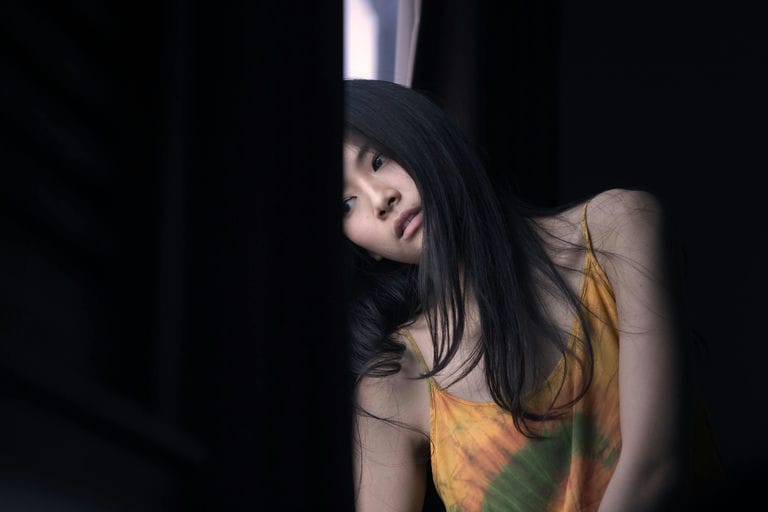
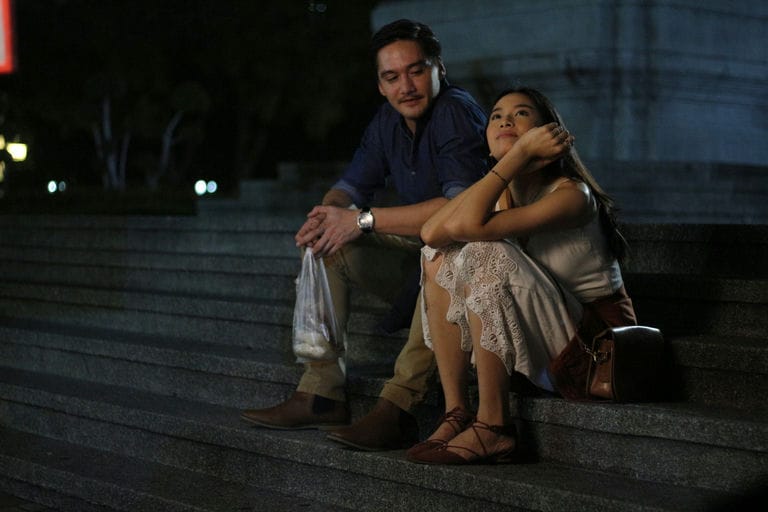
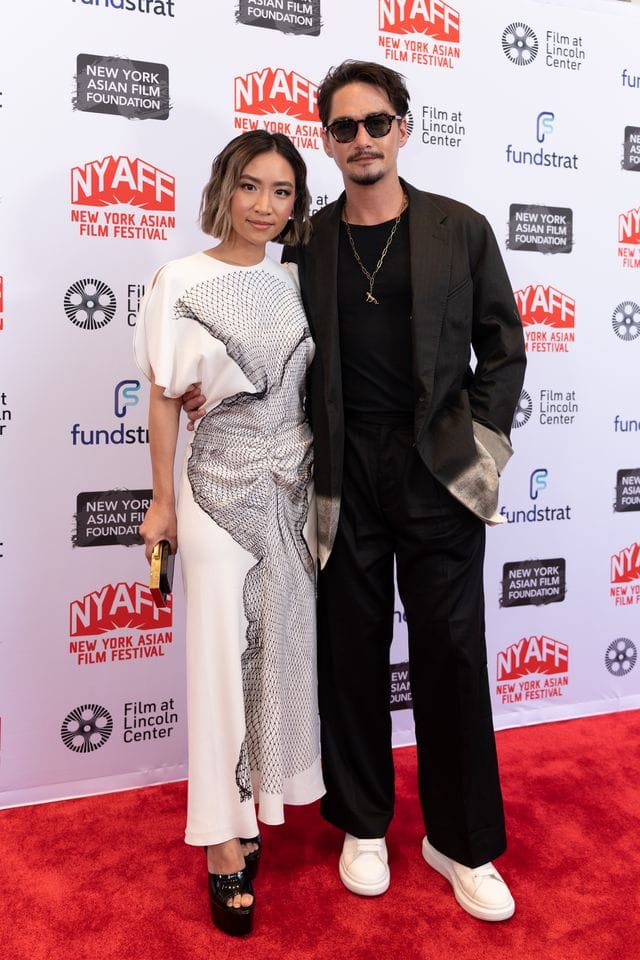
UNCAGED: It must feel like a time capsule now. What is it like to watch yourself from back then?
Chayanit Chansangavej: It’s good for me. It captured me at 20. I can’t be 20 again. My voice has changed. My face, my body, it’s all different now.
I couldn’t play that character now. It was like a second phase of youth. That character, that existential phase, it matched where I was in my 20s.
Ananda Everingham: Now, I’m more relaxed. When I saw the final draft, I realized I’d love to go back to that kind of vibe, to work on something free like that again.
To read the full interview, please go to Uncaged
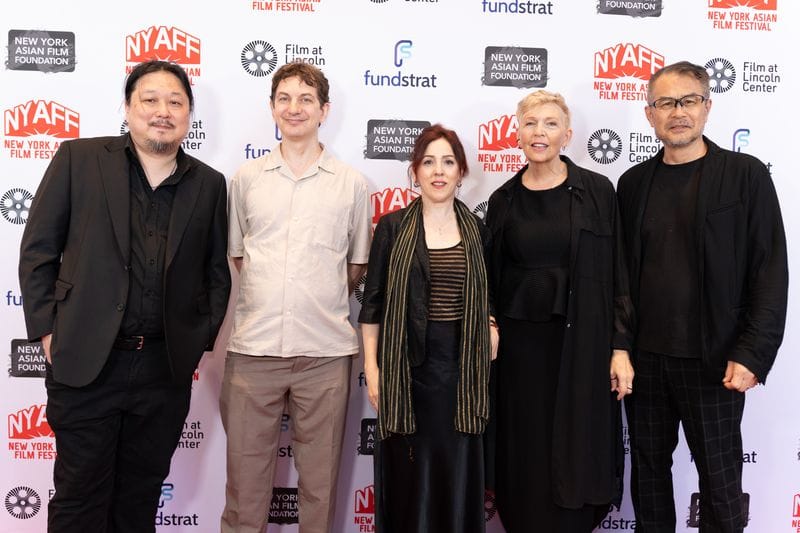
NYAFF Programmers Choice
With more than 100 films to choose from this year, we got our programmers to talk about some of their personal favorites and hopefully introduce you to some titles that weren't on your radar til now!
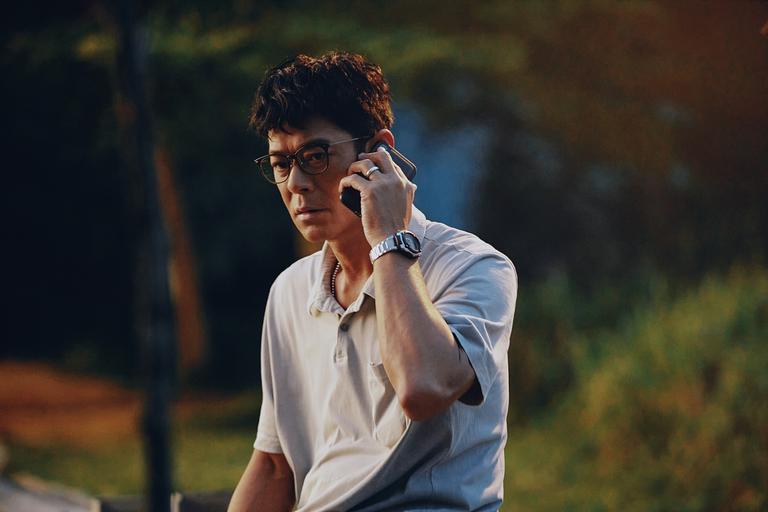
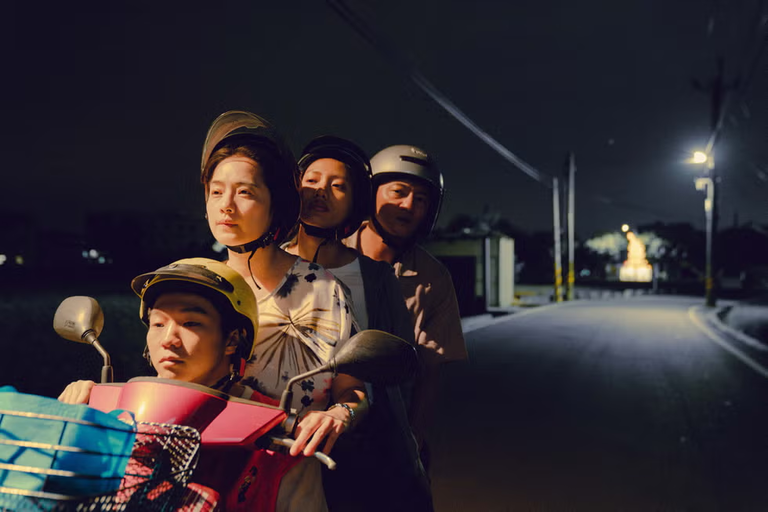
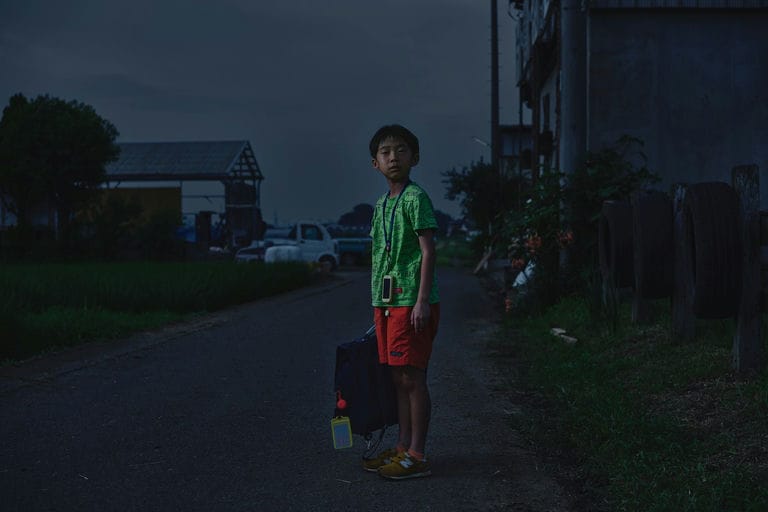
Left to Right: Behind The Shadows, Family Matters, How Dare You
David Wilentz - Programmer
Behind the Shadows: A pitch perfect neo-noir in the sweltering Malaysian heat brimming with existential dread and the anti-romantic blues. Asian superstar Louis Koo's alienated detective is too cool for school but may have met his match when a devil in disguise appears before him.
Family Matters: You'll be taken in by this tight knit nuclear family as both the charms and frailties of each of them are slowly revealed when secrets come undone. At once seamlessly naturalistic and poetically composed. A brilliant piece of filmmaking by a new talent to watch.
How Dare You?: First crush. The environment. Activism. Chaos. Guilt. Honesty. It's all here in this strikingly candid look at kids as they discover new feelings and ideas and how they'll take down the whole world with them if they have to just to figure it all out.
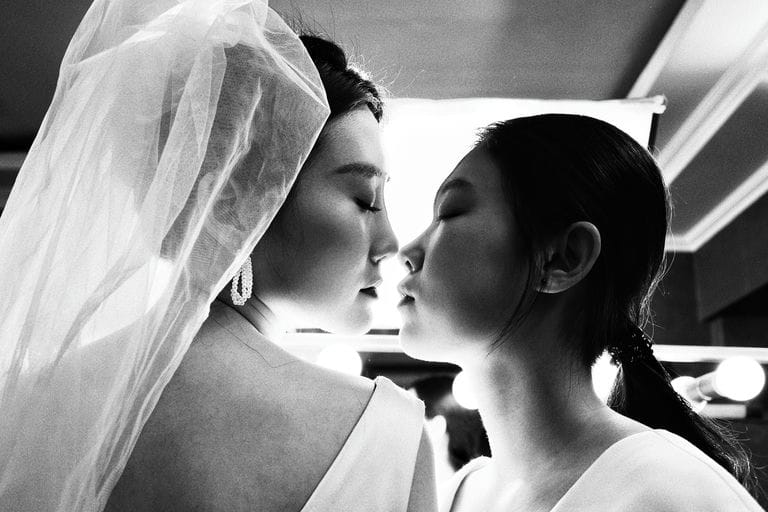
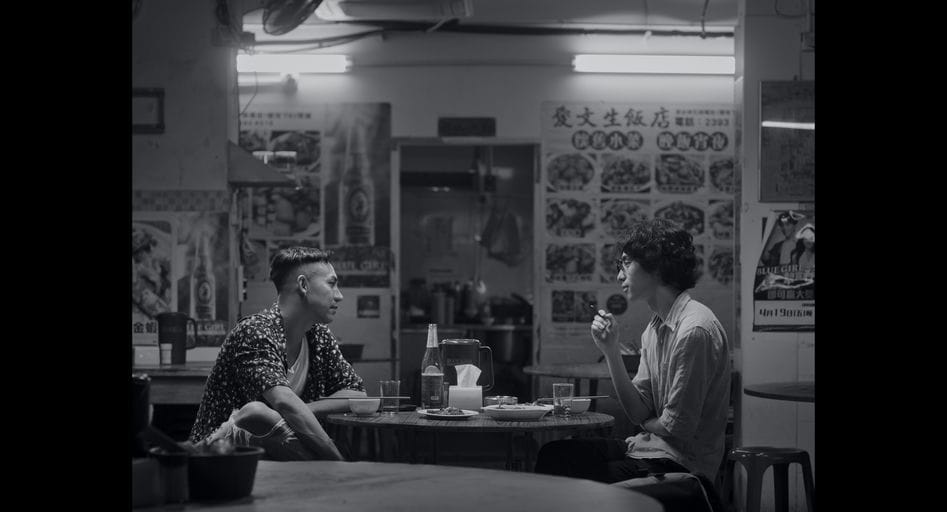
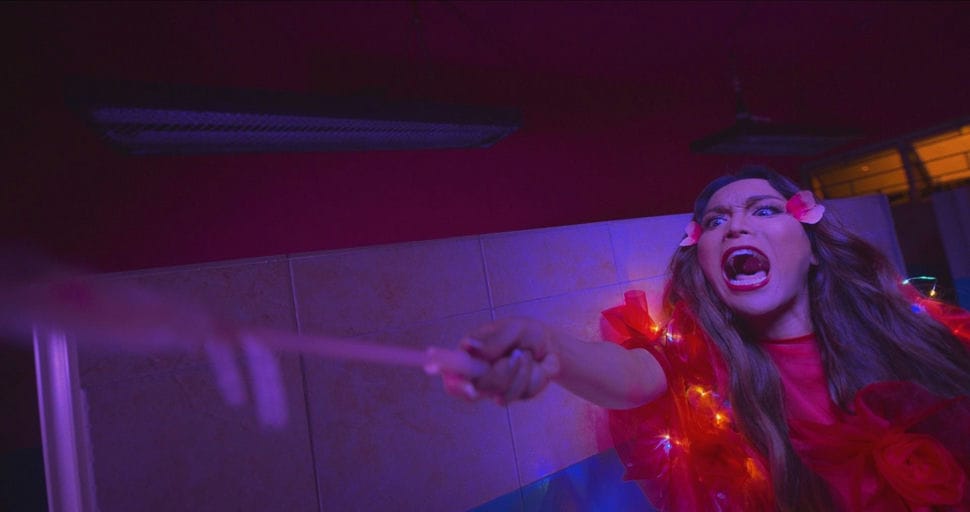
Left to Right: Bel Ami, Queerpanorama, Flower Girl
Karen Severns - Programmer - "NYAFF’s Queer Unbound lineup highlights eight fiercely original visions of LGBTQ+ life, breathtaking in their multiplicity, sublime in their artistry. Here are just three of the standouts"
Bel Ami: Deadpan and inventive, Geng Jun’s award-winner evokes Kaurismäki in its tale of two lonely souls who find unexpected intimacy in unlikely places, suffusing a frigid town with genuine warmth.
Queerpanorama: In this luminous snapshot of Hong Kong hook-up culture, a shape-shifting young man navigates encounters both volatile and tender, finding solidarity in a world of fleeting connections.
Flower Girl: A poochy goes poof in this wildly incandescent fantasy romp from Fatrick Tabada, as a self-absorbed young beauty earns karmic payback—and learns acceptance—after insulting a babaylan transfairy.
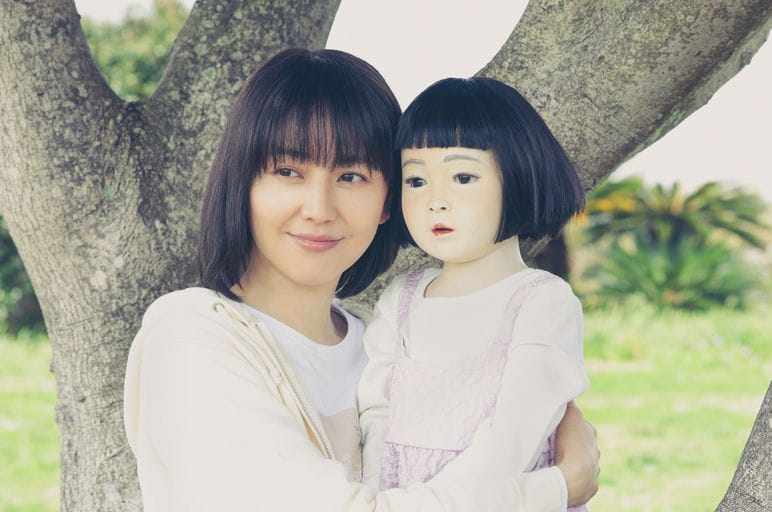
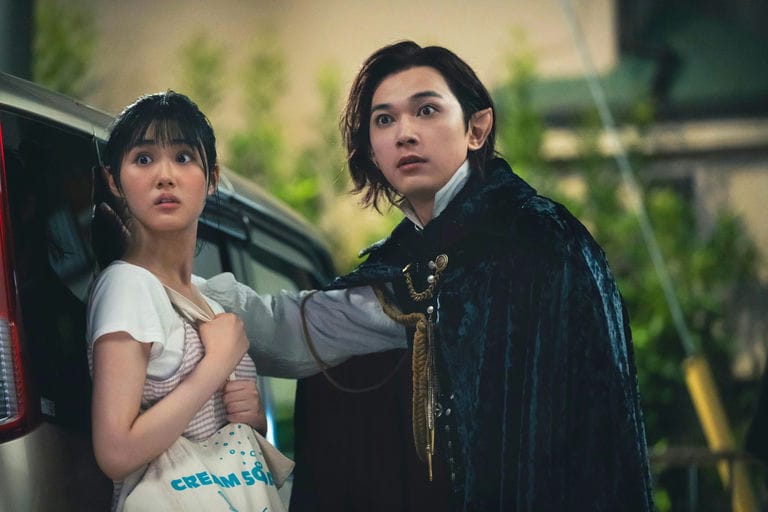
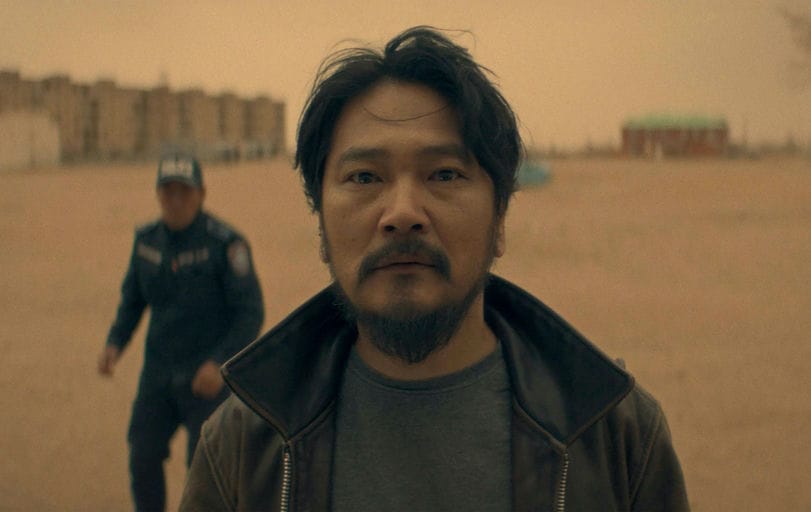
Left to Right: Dollhouse, Bababa Banban Vampire, Travesty
Koichi Mori - Programmer
Dollhouse: What happens when a grieving mother brings home a doll that resembles her deceased daughter? Then years later, her new daughter rediscovers the doll and soon their innocent play turns to a shocking twist that’s both terrifying and satisfying.
Bababa Banban Vampire: This sparkly BL vampire musical gleefully shreds every gothic cliché in its path, rocking a manic mashup of slapstick, snappy dialogue, bathhouse nudity and surprisingly sweet camp.
Travesty: When a remote hospital is held hostage by a deranged gunman, a big-city cop is sent to talk him down. If you think you've seen this kind of movie before, think again. It’s never been this kinetic, frenetic or tense, with hilarity to spare.
Hope you liked the first of our UNCAGED x NYAFF newsletters. Sign up below for more exclusive chats and some fun insider/behind the scenes at the New York Asian Film Festival this year.





